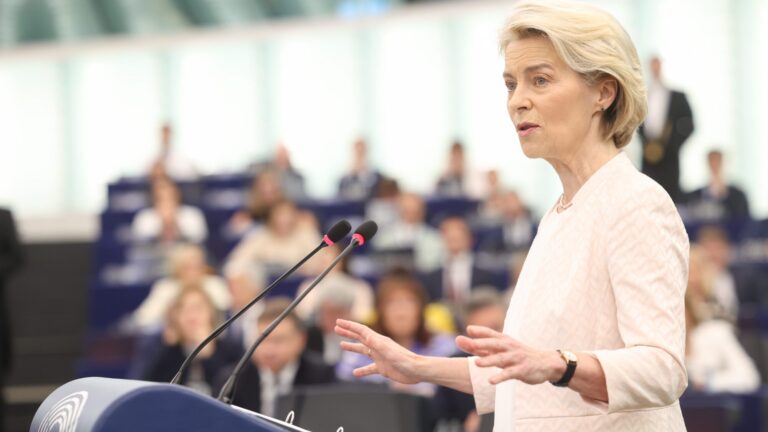With less than a year to go before European elections, speculation is mounting in Brussels that the current Commissioner for the Internal Market, Thierry Breton, is angling to replace Commission President Ursula von der Leyen for the top job in the EU Commission.
A former telecommunications CEO and ex-French finance minister turned Eurocrat, the energetic Breton has featured prominently in the EU’s spat with Twitter over content moderation. He has quietly declared his wish to fill von der Leyen’s shoes as rumours circulate that the 64-year-old former German defence minister is eyeing the job of NATO Secretary General, which becomes vacant in 2024.
Breton, who was appointed commissioner in 2019, has earned a reputation for amassing power, whether that be during the EU’s controversial vaccine programme, arming Ukraine, AI regulation, or Europe’s legislative attempts to bring Big Tech companies to heel.
Tasked with defending the EU’s prized common market in a world of rising rival blocs, Breton stands to benefit in the final year of the Commission’s term as his more-liberal Commission rival, Margrethe Vestager, departs for the European Investment Bank after serving as Head of Competition.
A keen ally of President Macron and the federalist Renew faction within the European Parliament, Breton was instrumental in the recent sabotaging of the candidacy of American-born economist Fiona Scott Morton, who was earmarked to head the directorate-general for competition (DG-COMP). Instead, she withdrew her name from consideration after French-led opposition claimed her background as an Obama White House official represented a conflict of interest.
The Scott Morton affair highlighted a transatlantic rift within EU policy circles about the extent of American influence on European decision-making and was used by Breton to form positive relationships with prospective backers for the presidency.
To be elected Commission head, Breton would need an initial nomination from a member state, approval by a majority of the European Parliament, and a final green light from the European Council.
Despite Breton’s ambitions, he faces a monumental task due to polling, which projects a third place for his Renew group in parliamentary elections, as well as hesitation among member states to increase French dominance within Berlaymont.
Breton is already understood to be courting moderate factions within the Parliament, such as the S&D and EPP, as well as his own Renew group, to become a unity candidate against a rising tide of populism.
While there is no certainty that von der Leyen will even vacate her role after 2024, the appointment of Breton would likely anger more Atlanticist elements within the EU establishment who have been enjoying the general pro-American outlook of the von der Leyen Commission regarding Ukraine and China.
Breton is a known proponent of European ‘strategic autonomy’ which posits greater EU independence from Washington as articulated by Macron in his remarks about future relations with China.
A Breton appointment could also spell disaster for free speech advocates and tech innovators within the EU due to his dirigiste approach to Big Tech regulation, having been one of the major forces behind the Digital Services Act, which grants the EU the upper hand over firms concerning content moderation.
The most powerful role within the EU, the Commission presidency represents the executive role within the EU’s governing apparatus and comes with considerable influence in setting the agenda for its five-year term.
According to political aides around Breton, his presidential bid is all but confirmed and should he fail to reach the required level of support, he will push to accumulate more bureaucratic power for himself.





